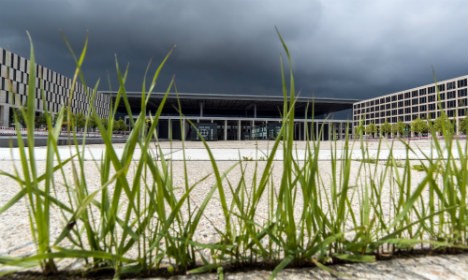Berlin-Brandenburg Airport (BER) has reached a binding agreement with contractors including Siemens and Bosch to have building work completed by November 2018, Bild reported on Thursday.
The tabloid claims to have seen an internal agreement which will be made public on Friday.
Due to the fact that months of testing will have to be done once construction is complete, the airport will only open in late 2019 at the earliest, if the report is true. According to Bild, airport management are now planning for an opening date in October 2019, but insiders have told the newspaper that early 2020 is a more realistic timescale.
If you feel like you’re having a serious case of deja vu reading this article, you’re not alone.
The airport was supposed to open in November 2011. But the big day was dramatically cancelled at the twelfth hour after the terminal building didn’t pass a fire safety check. Since then the opening date has been rolled down the hill more often than Sisyphus’ stone.
In May 2016 airport authorities admitted that they would not meet a 2017 opening date, the fourth time the opening had been delayed.
In March city mayor and the airport oversight committee, made up of politicians from the city of Berlin and the state of Brandenburg, appointed Engelbert Lütke Daldrup to take over the project. Lütke Daldrup insisted at the time that he would have BER opened in 2018.
The building project has been hit by corruption trials – an ex-employee was jailed in 2016 for taking a suitcase full of cash from a contractor – and several high profile sackings.
Most spectacularly, the PR manager lost his job after just three months last year for suggesting that the project had been a “shit show”.
READ ALSO: Still unopened, Berlin Airport plans ambitious expansion



 Please whitelist us to continue reading.
Please whitelist us to continue reading.